Did you know that a lot of music royalties are missed by artists? This is because artists are often unaware of the many ways royalties can be collected. As well as who holds each type of music right.
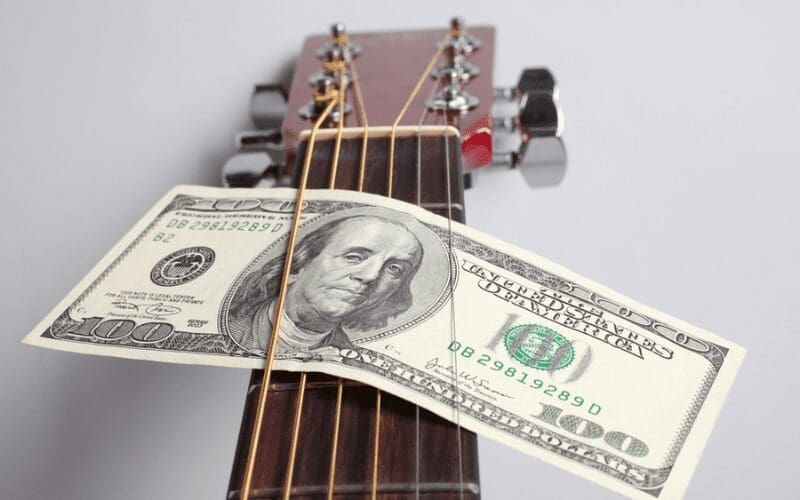
Understanding the intricacies of royalties in music can be challenging. Such as the many sources from which royalties are earned. As well as the methods of collecting them. Royalty law works differ between countries, as well as the many people and companies engaged in music production.
This article sets out very simply how royalties in music work. It also gives you valuable advice on how to get royalties for your music, increasing your income! Keep reading for everything you need to know!
What Are Royalties In Music?
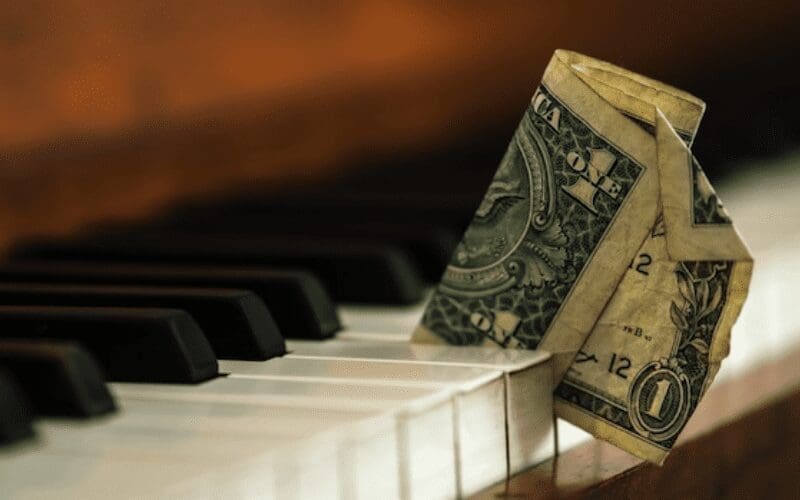
Music royalties are payments that go to rights holders. Such as songwriters or composers for the right to use their intellectual property.
We can define royalties in music as the fees paid to rights holders for each use of their music.
For example, royalties will be generated when a song is streamed on Spotify. Spotify has to pay rights holders for various types of royalties.
To understand what royalties are in the music industry as well as their relevance, just think about film score composers. In the music business, royalties are one of their main sources of earnings.
Royalties make up a significant slice of the music industry, as a kind of passive income. Learning how to earn money from the usage of your copyrighted music can significantly increase your earnings.
Sometimes you can get fees instead of/on top of royalties, however. You can read more about that in our article about Music Licensing Fees.
To earn everything possible from your music, you need to know how to collect music royalties and what all the different types are. That’s where this article comes in!
How Do Music Royalties Work?

To start understanding how royalties in music work, you should know a few things about music rights.
First, stop thinking about your song as a single deal. Your song exists in at least two forms. The first is as a composition (a musical work with or without lyrics). The other is a sound recording (also known as a master recording).
Therefore, music copyright is split into two main sections.
One of which is Publishing Rights, which belong to the owners of the music composition. The second is Master Rights, which belongs to the owners of the master recording.
Cover songs provide a simple example of how this works.
Let’s say Artist B records a cover of Artist A’s composition. Artist B only owns the rights to his own recorded version of the composition and gets paid royalties for his master rights only.
But, Artist A still owns the composition and earns royalties because Artist B recorded a cover version of Artist A’s song.
This is a simplified example just to give you an idea! But you might also need to consider the role of the performers, session musicians, and publishers. As well as any rights holders who are engaged in the work.
For additional information, check out our guide on Music Rights!
Different Types Of Music Royalties
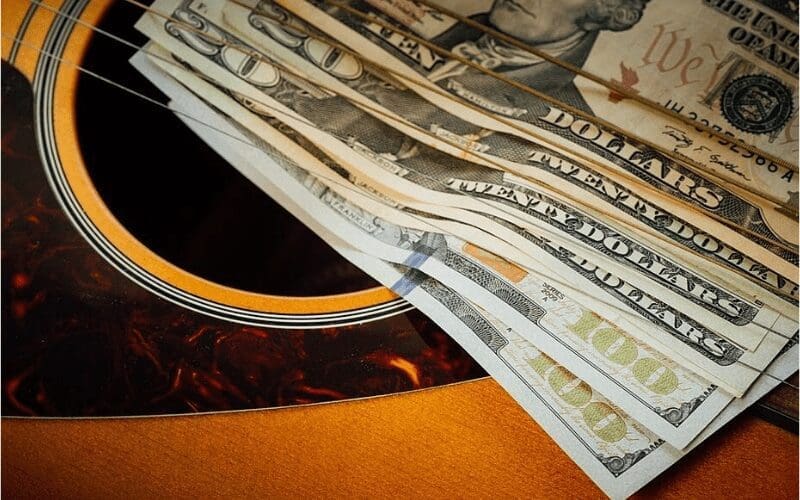
Royalties in music are divided into several different types, often paid out in different ways. Here is a bit more about them.
Neighboring Rights Royalties
Neighboring Rights Royalties apply to master recordings performed or broadcast in public.
Simply put, they are similar to public performance royalties. But apply to ownership of a recording and the performers/instrumentalists on a recording.
For more information, check out our article on Neighboring Rights!
Print Music Royalties
Print Music Royalties apply to copyrighted music transcribed to a print piece. Such as sheet music. They are then distributed through a print music publisher.
These royalties are generated when a printed piece is created. Based on the number of copies made.
Print royalties are not common for recording artists. But are a common form of payment for classical and film composers.
The final three are Performance Royalties, Synchronization Royalties, and Mechanical Royalties. We don’t want to give anything away, so you can read all about these in our article on Music Rights!
Get Royalties For Your Music

Unless you have basic knowledge of who pays royalties for music and how each type is collected, getting royalties for music can be tough going.
But don’t worry, here comes an easy explanation!
If you are thinking about streaming music, it could be a little tricky trying to calculate your prospective music royalties by yourself. This is due to the multitude of factors involved. Such as music publishing royalty rates.
Performance rates are negotiated each year between Performance Rights Organizations (PROs) and music service providers. While Mechanical Rates, unless otherwise negotiated, are determined by statute.
Given this, a music streaming royalties calculator is definitively the best choice. You can try this out with our very own Royalty Calculator! Just insert an estimated number of streams and, in less than a second, you will have an idea of your streaming income!
After the calculations, you’ll need to know how to collect the royalties.
Fortunately, there are a lot of music royalty companies that can do it for you. You just need to understand which companies are right for you!
Music Royalty Companies
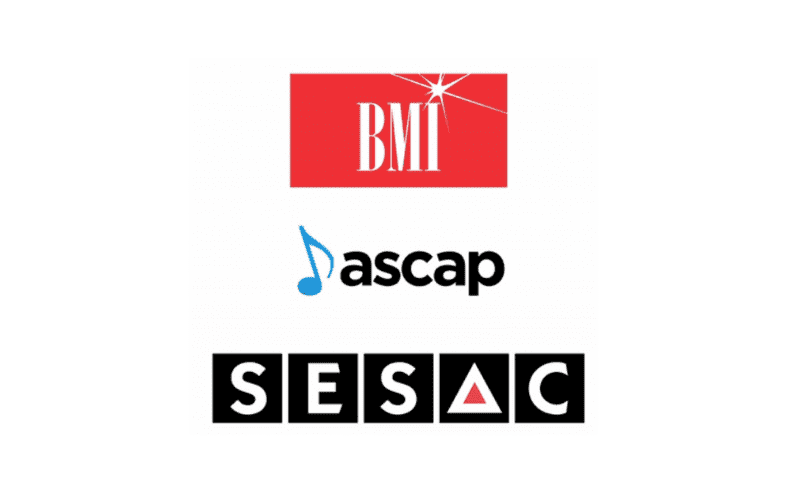
Music royalty companies provide intermediary services between copyright holders and parties who use copyrighted works.
Joining one or more royalty companies will help you get royalties for your music. Let’s see how royalty music management works.
Performance Rights Organizations (PROs) collect public performance royalties, while Mechanical Rights Organizations (MROs) collect mechanical royalties.
Additionally, Collective Management Organizations (CMOs) collect Neighboring Rights Royalties. All of them distribute royalties to the rights holders based on their shares.
Summing up, the main types of royalties are collected and distributed as follows:
- Performance Royalties: collected by Performing Rights Organizations that distribute these royalties to songwriters/composers and publishers
- Mechanical Royalties: collected by Mechanical Rights Organizations that distribute these royalties to songwriters/composers and publishers
- Neighboring Rights Royalties: collected by Collective Management Organizations that distribute these royalties to master rights holders and performers/instrumentalists
It’s important to remember that music royalty companies change from country to country. With that in mind, here are a few examples.
Registering With A PRO
If you are a songwriter, a composer, or a publisher, you might need to register with a PRO such as ASCAP, SESAC, or BMI Royalties. A PRO can help you get your public performance royalties.
We provide a complete article comparing ASCAP vs BMI vs SESAC. Check it out to help make your choice!
Mechanical royalties are also due to you, of course. But they work differently. You should make your consideration based on your country. In many countries, some royalties companies collect both performance royalties and mechanical royalties. So you may not need an MRO.
If you’re based in the US, the Harry Fox Agency or an admin publishing company such as Songtrust or TuneCore Publishing could be your answer.
Finally, if you are a master rights holder or a performer/instrumentalist (such as a featured artist) neighboring rights royalties could be due to you. Even then, your country could be the deciding factor.
However, services like SoundExchange collect digital performance royalties from non-interactive streaming platforms and cable TV radio stations.
Conclusion
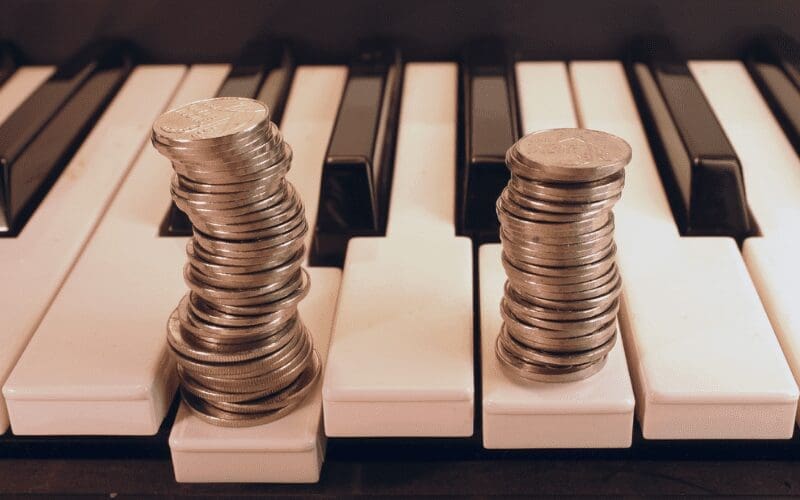
Getting royalties for music is one of the best ways to boost your music business. If income from royalties is due to you, you should learn how to claim it.
This article has set out all the basic knowledge you need to get royalties from your music. You will have learned about all the basic tools needed to start or boost your adventure in the music business.
To summarize, here are the main tips to help you on your way:
- Management of royalties can vary a lot between different countries. So when you decide to claim royalties, keep that in mind.
- There are different types of music royalties and you might be owed more than one. You’ll have to join one or more royalty companies to be sure to collect all of your royalties.
Now it’s time to get started!
Don’t forget to share this article with your fellow musicians and give us a tag on your socials @musicgateway! We would love to hear what you think about this guide, so feel free to share your thoughts in the comment section below! If you found this helpful, make sure to check out our article on How To Copyright Your Music!










